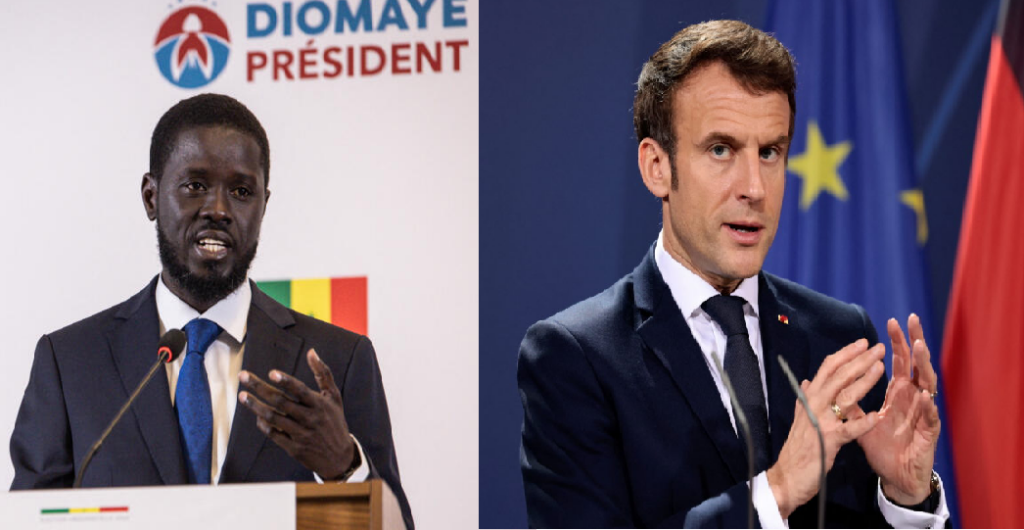|
Getting your Trinity Audio player ready...
|

- Newly elected President of Senegal Bassirou Diomaye Faye has promised to review oil and gas deals with Western countries, including agreements with British Petroleum, Endeavor Mining, and Kosmos Energy.
- The departure of Senegal from the CFA franc zone put the final nail in the financial system which brought huge profits to France and on which the entire system of French neocolonialism was essentially built.
- Macron’s prioritization of the Ukraine conflict has led African leaders to view France as inattentive to their needs, fuelling further anti-French sentiment and leading to a strengthening of ties with Russia.
After Niger, Burkina Faso, and Mali, historical events are brewing in another West African country – Senegal. Senegal is now close to eliminating the country’s neocolonial dependence on its former ruler – France.
In the recently held presidential elections, the opposition candidate Bassirou Diomaye Faye won a handsome victory. As part of his election promises, he promised to review oil and gas deals with Western countries, including agreements with British Petroleum, Endeavor Mining, and Kosmos Energy. Faye advocates a radical revision of relations between Senegal and France. As part of this, he is going to follow neighbouring Mali, Niger, and Burkina Faso to leave the French currency system (by abandoning the CFA Franc). The French military will have to leave the country. In contrast, Faye has promised to take a path of rapprochement with Russia. Thus, France’s next major foreign policy defeat on the African continent looms on the horizon.
Sensing these developments, Paris had announced a little earlier that it was drastically reducing the military contingent in the country, a move that would avoid any embarrassment later. Moreover, Senegal was a key player in the issue of the blockade of Niger, Burkina Faso, and Mali, which had previously freed themselves from the influence of Paris. The departure of Senegal from the CFA franc zone put the final nail in the financial system which brought huge profits to France and on which the entire system of French neocolonialism was essentially built.
Many have opined that all of Macron’s current anti-Russian hysteria emanates from the setbacks in Africa. President Macron has been advocating sending French soldiers to Ukraine. He has stated that Europe can’t afford to let Russia win over Ukraine as it would put European security at risk. He understands that he is losing to Russia and Ukraine for him is the last chance to resist Moscow and gain political relevance which he seems to be losing due to the failures in Africa.
While there’s a connection to be drawn between France’s recent struggles in sub-Saharan Africa and President Macron’s strong criticisms of Russia, the situation is multifaceted.
France’s historical ties to the region, perceived as neocolonial, continue to spark resentment. Many African nations believe France prioritizes resource extraction over fostering development. Additionally, French military interventions in the Sahel, intended to combat terrorism, haven’t translated into lasting solutions. This has led some Africans to view these deployments as self-serving, protecting French interests rather than regional security. As a result, anti-French sentiment has been on the rise, with some leaders turning to Russia and China as alternative partners.
Macron’s focus on European security, particularly his strong stance against Russia regarding Ukraine, is being interpreted as neglecting Africa’s concerns. Furthermore, France and Russia are rivals for influence in Africa. Macron’s criticism might be a strategy to counter Russia’s growing presence there.
Macron’s prioritization of the Ukraine conflict may have emboldened some African leaders who view France as inattentive to their needs. This could fuel further anti-French sentiment and lead to a strengthening of ties with Russia. However, it’s important to remember that France’s difficulties in Africa predate the Ukraine war. African nations have their motivations for seeking new partners, reasons that extend beyond France’s actions.
In conclusion, while Macron’s anti-Russian rhetoric may be a contributing factor, it’s likely just one piece of a larger puzzle. For France to maintain positive relationships with African nations, it needs to address the root causes of their discontent.
(Srijan Kumar is pursuing a PhD in South Asian studies from Delhi University. He is a writer and a columnist for various digital media houses. Opinions expressed are the author’s own)
